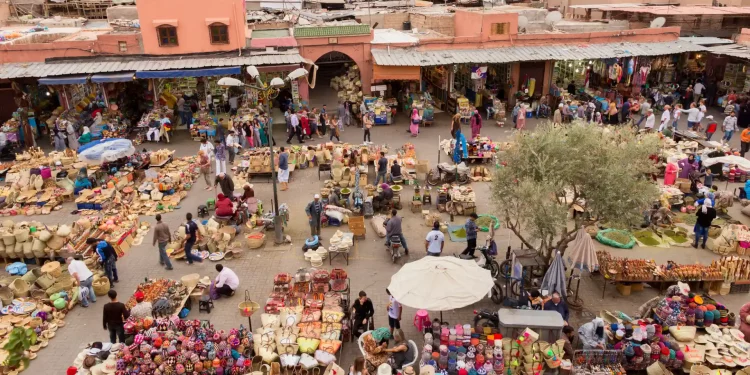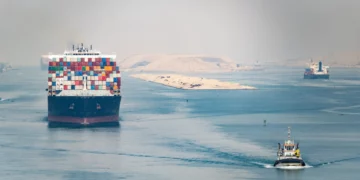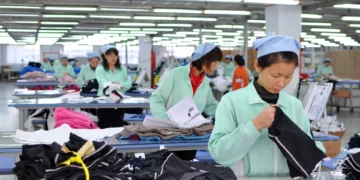African leaders met for the annual summit of the African Union (AU) in Addis Ababa, Ethiopia, to talk about important business matters, such as strategies to turn Africa into a global economic powerhouse.
On February 17, 2024, this two-day high-level summit focused on a treaty that the African Union claimed would transform trade on a continent where trade between nations is negligible, and the majority of imports come from China and other countries.
The African Continental Free Trade Area (AfCFTA), one of the largest free trade areas in the world, will unite 55 economies into a single, competitive mega market of over a billion people after being ratified by the majority of African nations. An estimated 30 million of Africa‘s extreme poor will be lifted out of poverty by the pact, according to AU estimates. Even so, the actual implementation of the treaty has been delayed, potentially reversing its benefits and raising questions about the AU’s ability to carry out the strategy effectively.
Everything to Know About AfCFTA and its Promises
The AfCFTA was first established in July 2019. It is known to be a cornerstone of the AU’s 50-year plan to accelerate economic growth in Africa. Its main objectives are to promote open visa policies, lower trade obstacles, increase cross-border investments, facilitate the smooth and affordable flow of products and services between nations, and enhance economic integration in Africa. It also plans to raise the rate of local manufacturing. It also strives to increase Africa’s share in the world market, which is currently barely 3 per cent.
With the exception of Eritrea, all 55 AU members have ratified the agreement. They will be represented by the eight recognized regional economic blocs, which include the Economic Community of West African States (ECOWAS) and the South African Development Community (SADC). January 2021 saw the treaty go into effect.
The AU is also aiming to eliminate tariffs on 90 per cent of the products and generate an extra $450 billion in revenue for Africa by 2035. The AU projects that if the agreement proceeds as planned, Africa’s economy will reach $29 trillion by 2050.
Current Overview of Trade Outlook in Africa
To shield their markets from competition from other regions, African countries have frequently erected trade barriers. Currently, imports from within Africa are 6.1% more expensive than imports from outside the continent due to intra-continental trade taxes. They can also export most of the raw materials to China and also import readily finished goods from China.
Many African countries need to manufacture more goods themselves so that they can move up the value chain. Another challenge that has risen is the poor connectivity between African countries, which makes it difficult and expensive to trade. They require a visa to travel to other African countries, too, which requires several months to obtain.
What Occurred Under AfCFTA?
In January 2021, the trade began, but during the pandemic, it was halted to some extent. In 2022, the AU created a pilot program called AfCFTA Guided Trade Initiative. Eight countries, Egypt, Cameroon, Kenya, Ghana, Mauritius, Tanzania, Rwanda, and Tunisia, have participated in it. Nearly 96 products were approved for pilot trade, resulting in the first shipments from Kenya and Rwanda to Ghana.
Later, South Africa joined the trade to export products to other African countries. For these early trades, the total value and tariff reductions need to be clarified.
AfCFTA Challenges
Due to a lack of international information exchange, traders must deal with problems like unexpected levies and unnecessary product testing. Small firms make up a significant portion of African trade, and those operating in border areas may be excluded from the present structure.
Delays in the promised “common passport” enabling unrestricted mobility draw attention to the AU’s continuity problems and the necessity of stricter enforcement. Other geopolitical tensions and military coups in Africa could affect the progress and stability of this agreement.
What Happens Next?
During the AU summit, the member states will discuss key agreements regarding intellectual property, women’s inclusion, investment, and digital trade. This requires approval first. Countries could proceed with ratifying these protocols if a summit resolution is made. Possible connections to programs like the African passport and unrestricted travel will also be discussed.

















